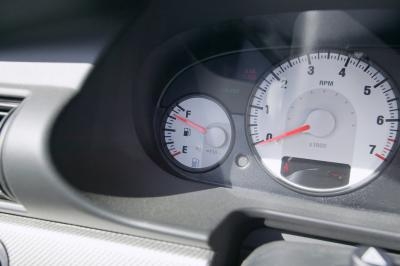
Although an often overlooked mechanism, a tachometer or rev counter serves an important role in your vehicle's functioning. The ability to calculate revolutions per minute (RPM) allows manual transmission drivers to get better acceleration and gas mileage when shifting. Despite its advantages, tachometers may malfunction or experience intermittent issues.
If your vehicle's tachometer is unstable, the first thing to check is the instrument cluster's fuse. In order to function properly, your electronic instrument cluster must have appropriate voltage -- 10 volts -- and grounding. AA1Car reports that importance of voltage and grounding is universal, regardless of make or model.
Tachometers require communication with the vehicle's sensors in order to function. If one or more of your vehicle's sensors fail, your tachometer becomes unstable or may stop working altogether. You can examine the problem by referring to your vehicle's wiring diagram to check the connectivity between the cluster's wiring harness and the sensors.
If the instrument cluster itself is the problem, AA1Car states dealers have no provisions for "servicing or repairing" a defective unit, which means the entire panel requires replacement. By law, if purchasing a used unit, the odometer must be reset to reflect your vehicle's current mileage.